Squamous Cell Carcinoma
Understanding Squamous Cell Carcinoma (SCC) and the Importance of Early Detection
Squamous cell carcinoma (SCC) is the second most prevalent type of skin cancer, often developing on areas of the skin frequently exposed to the sun, such as the head, neck, ears, lips, arms, legs, and hands.
Regular skin checks by a dermatologist at Cumberland Skin are vital for detecting squamous cell carcinoma early. Our experienced dermatologists are skilled at identifying suspicious lesions, growths, or skin changes that may indicate the presence of squamous cell carcinoma. Additionally, performing self-exams at home is equally important, as it allows individuals to monitor their skin for any unusual or evolving areas, such as persistent sores, rough patches, or raised nodules.
Combining professional dermatological assessments with regular self-examinations greatly increases the likelihood of early detection, which is crucial for successful treatment and better outcomes. This highlights the importance of routine dermatologist visits and self-monitoring in maintaining optimal skin health.
At Cumberland Skin, your skin’s health is our top priority. Our dedicated team of professionals is here to support you and your family at every stage of your skin health journey. We are committed to providing exceptional care and personalized guidance, ensuring a comprehensive approach to your skin wellness needs.
Explore more about squamous cell carcinoma and contact us to schedule your skin check.
Examples of Squamous Cell Carcinoma
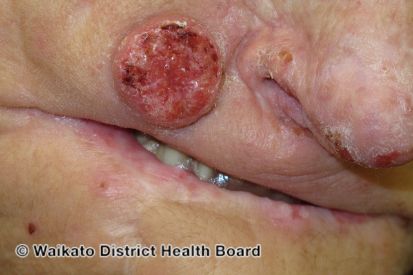
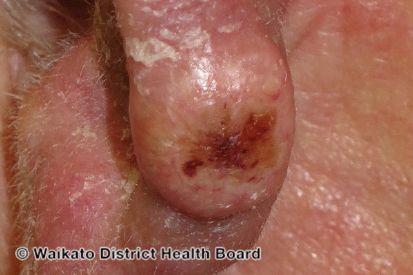
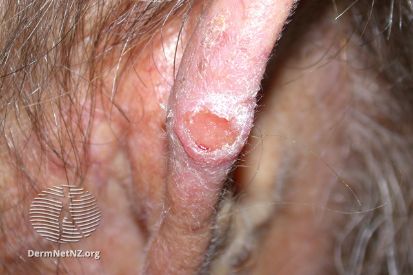
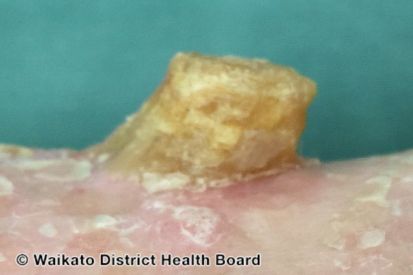
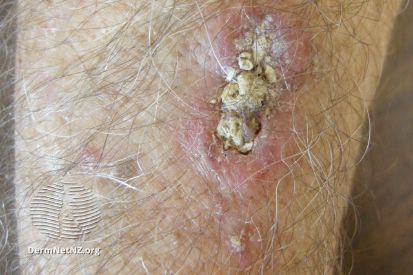
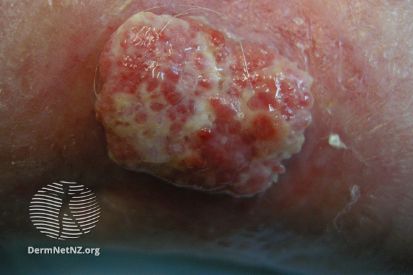
Symptoms of Squamous Cell Carcinoma
- Squamous cell carcinoma usually begins as a dome-shaped bump or a red, scaly patch of skin.
- Rough and crusty and can bleed easily when scraped.
- Changes in existing growths: changes in the appearance of existing skin growths, such as warts or scars.
- Persistent sore: a sore or lump that doesn't heal, or a lesion that keeps recurring.
What Causes Squamous Cell Carcinoma?
- Squamous cell carcinoma (SCC) can affect individuals across diverse backgrounds.
- It is more prevalent in those with regular exposure to direct sunlight, especially in professions or lifestyles that involve significant sun exposure.
- While skin cancer is less common in individuals with darker complexions, they are at an increased risk for SCC in areas of the body not typically exposed to the sun.
Squamous Cell Carcinoma Prevention
Squamous Cell Carcinoma (SCC) Frequently Asked Questions
Diagnosis involves a biopsy, where a sample of the suspicious area is removed and examined under a microscope. This helps confirm whether the lesion is cancerous and provides information about its characteristics
Treatment options for SCC depend on factors such as the size, location, and stage of the cancer. Common treatments include surgical excision, cryotherapy and Mohs surgery for more complex cases, radiation therapy, and topical medications.
The frequency of screenings depends on individual risk factors. High-risk individuals, such as those with a history of SCC or other skin cancers, may need more frequent screenings. Consult with your dermatologist to determine the appropriate screening schedule for your situation.
While SCC is usually slower-growing than melanoma, it has the potential to be locally aggressive and may spread to other parts of the body, especially if left untreated.
A total body skin exam is crucial for several reasons. Firstly, it serves as a proactive measure for the early detection of skin cancers, including melanoma, the deadliest form of skin cancer. Skin cancers are often highly treatable when identified at an early stage. A comprehensive examination allows the dermatologist to assess moles, birthmarks, and any unusual skin changes that may indicate potential issues.
Regular skin exams become especially vital for individuals with risk factors, such as a family history of skin cancer, a personal history of sun exposure, or fair skin. Overall, a total body skin exam is a proactive and comprehensive approach to maintaining skin health, preventing skin cancers, and addressing any skin-related issues in a timely manner.
From Our QualDerm Family of Providers: Non-Melanoma Skin Cancers
Treatment Options for Squamous Cell Carcinoma
- Mohs micrographic surgery
- Excisional surgery
- Cryotherapy (freezing)
- Currettage and Electrodessication
- Chemotherapy
- Radiation
Related Blog Posts
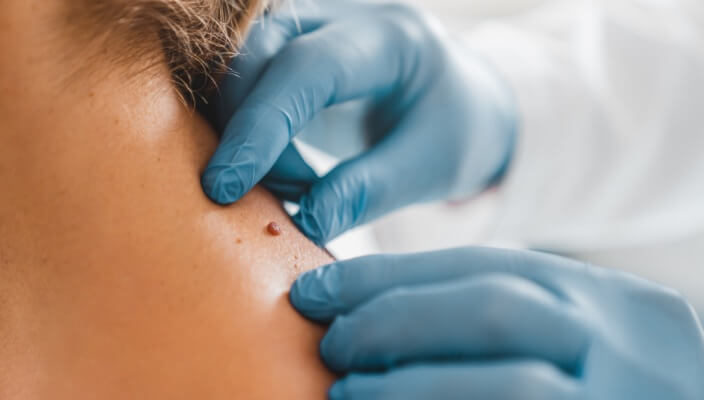
- Skin Cancer
- Skin Exams
With skin cancer cases rising year after year, it’s no surprise that people are itching to learn more about this life-threatening skin disease
Read More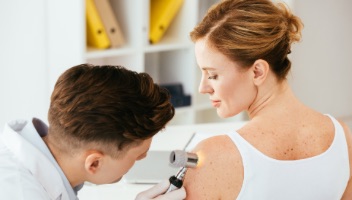
- Skin Cancer
- Skin Exams
In this blog, we’re covering what you need to know about five dangerous skin cancers, including basal cell carcinoma (BCC), squamous cell carcinoma (SCC), malignant melanoma, merkel cell carcinoma, and kaposi sarcoma.
Read More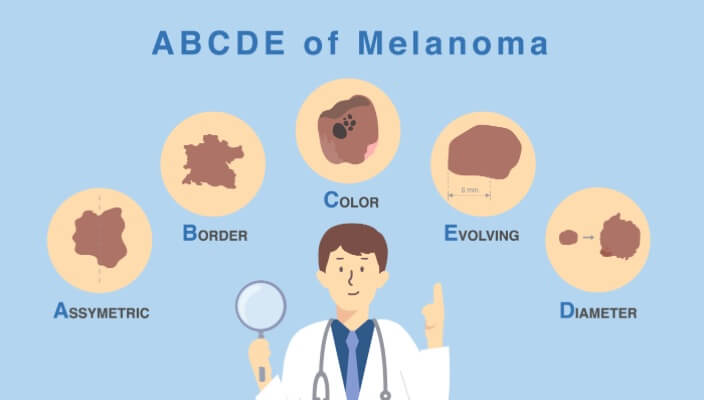
- Skin Cancer
- Skin Exams
Discover the ABCDEs of melanoma. Familiarize yourself with the five key indicators to aid in early detection and prompt medical attention for any suspicious moles or skin lesions.
Read MoreFeatured Products for Sun Protection
Check your local office for current stock!
Check your local office for current stock!
